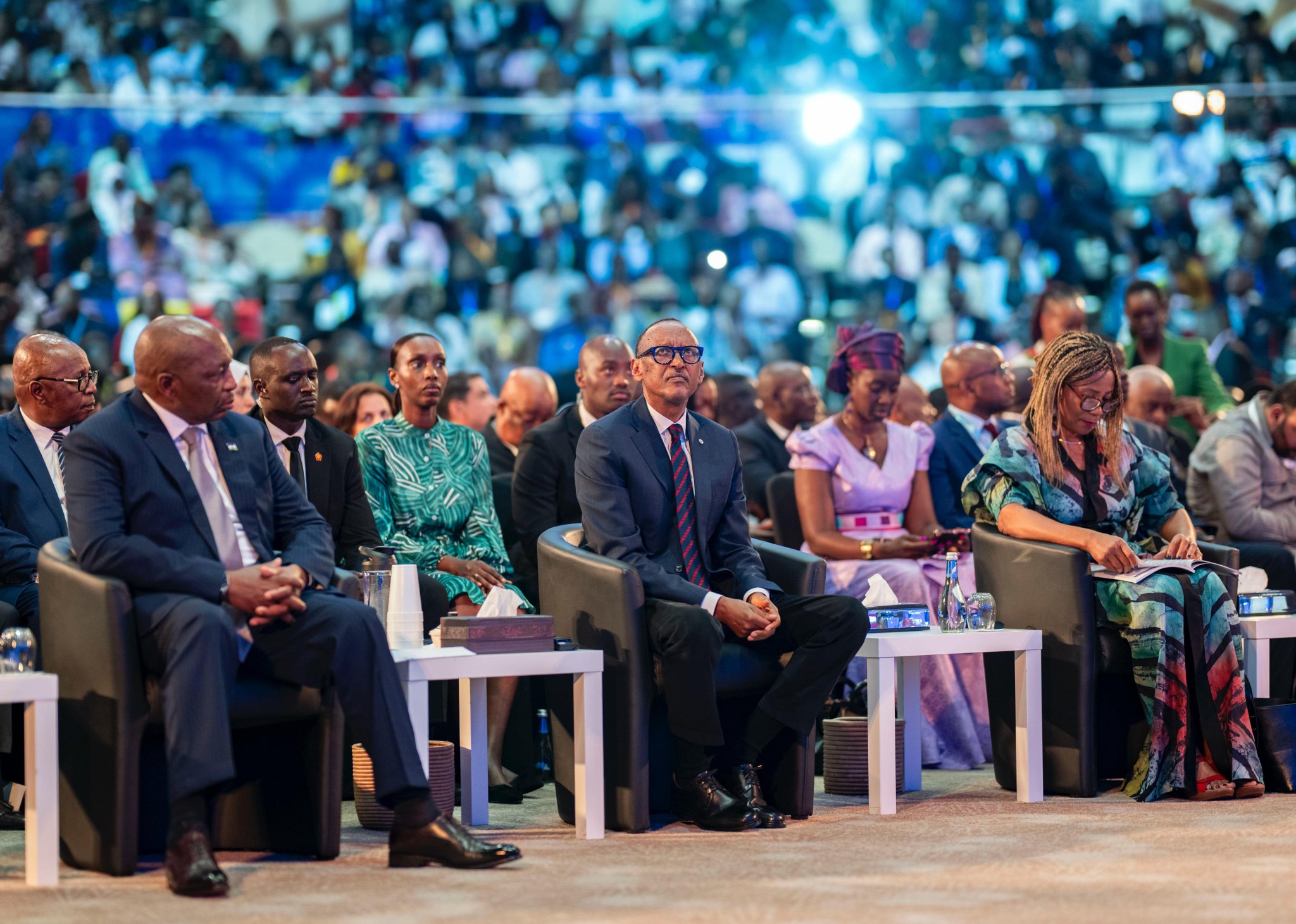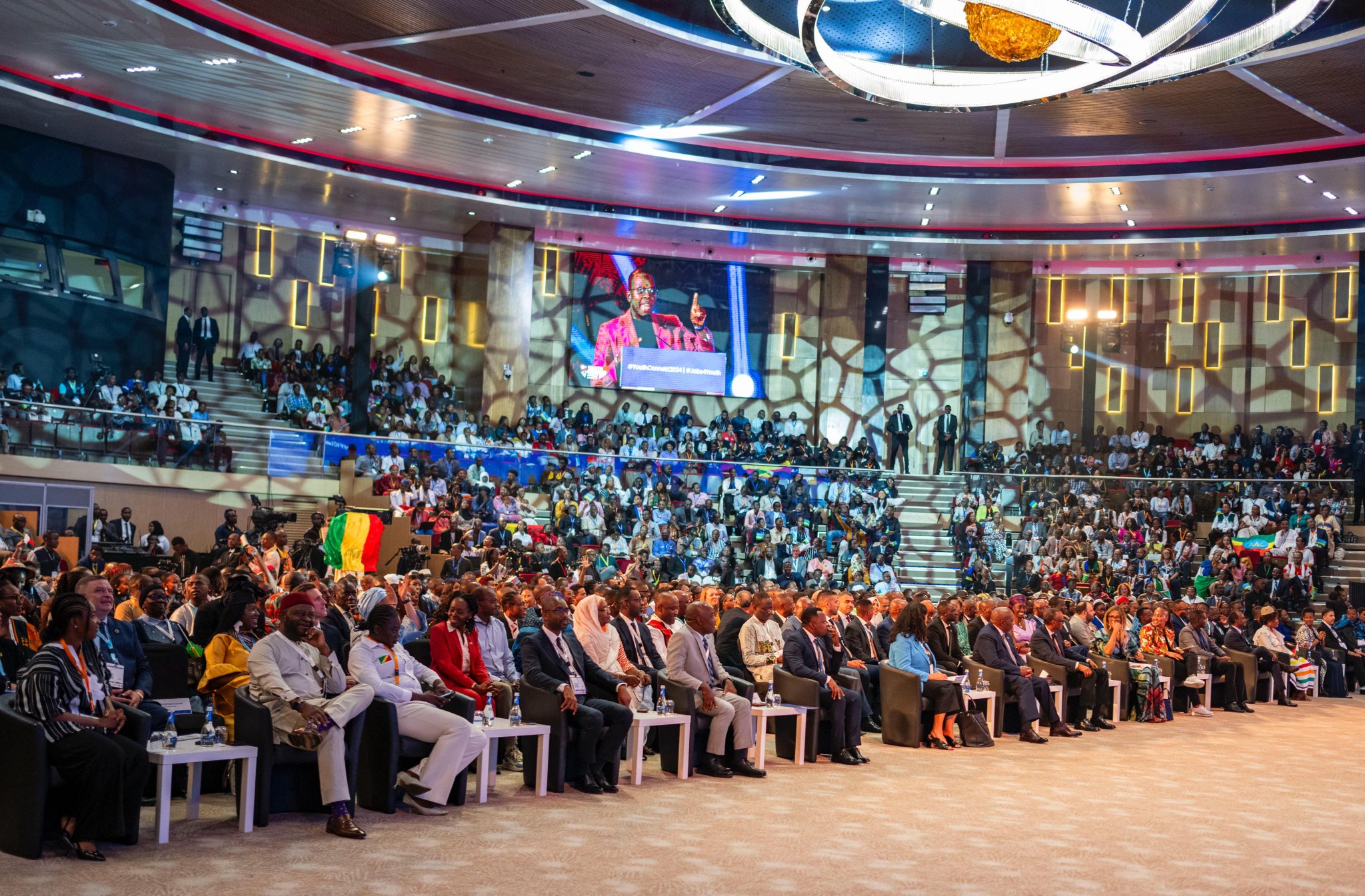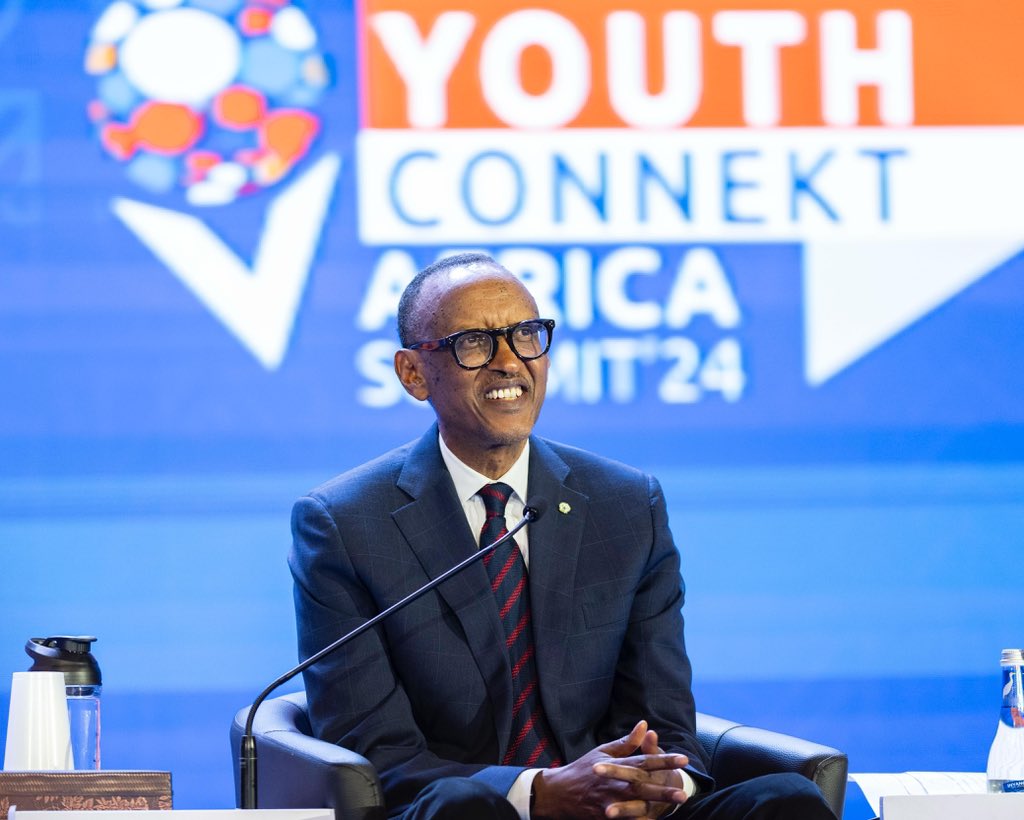A somber mood fell over the audience at the YouthConnekt Africa Summit 2024 as President Paul Kagame, one of Africa’s most influential voices, shared a personal story of hardship, resilience, and hope. Addressing young leaders gathered under the theme “Jobs for Youth Through Innovative Skilling,” Kagame spoke from experience—of a childhood shaped by adversity in a refugee camp and of a continent still wrestling with the ghosts of its past.
Kagame arrived for the summit’s official opening in Kigali, accompanied by Lesotho’s Prime Minister Samuel Ntsokoane Matekane and Mumbi Ndung’u, Founder of the Power Learn Project. Together, they engaged in an intergenerational dialogue on building Africa’s future, with an audience of young Africans listening closely to every word.
The President shared a memory from when he was twelve. Life in a refugee camp raised hard questions, and he once asked his father, “Why are we here? What did we do?” It was a question no child should have to ask, yet a familiar one for many African families. His father’s response—a story about political missteps, colonialism, and the independence struggles that uprooted communities—left an indelible mark on Kagame’s young mind. “It was clear that it was politics, the leaders,” Kagame told the audience. “Everything was just what it should not have been.”
Now decades later, Kagame looked out at a room filled with hopeful young Africans and reflected on the painful reality that not much has changed for many. “What I experienced when I was four years old, why should it be happening now anywhere?” he asked, his voice marked with a mix of sadness and resolve. “Why should it happen anywhere on our continent?”
The summit’s theme on youth skilling and employment struck close to home. Kagame has spent years advocating for young people, and the challenges they face were a vivid reminder of his own journey. For him, the stories of young Africans facing political instability, economic hardship, and lack of opportunity are not just statistics—they are lives held back by systems that have failed to change.
Alongside Prime Minister Matekane and Ndung’u, Kagame called for a renewed commitment to transforming Africa’s governance, creating meaningful jobs, and supporting innovations that empower young Africans. Ndung’u, herself a champion for tech-based education, echoed Kagame’s sentiments, urging for solutions that address the reality of young people today. Prime Minister Matekane also spoke about policy changes that could open doors for Africa’s youth.
As the summit unfolds, Kagame’s words continue to resonate with those present: “It’s disheartening that what I am talking about then, so many years ago in the sixties, some of that is still happening even now.”
The YouthConnekt Africa Summit serves as a platform for young people and leaders to confront these issues head-on. Kagame’s call to action isn’t just about politics; it’s a personal plea for leaders across Africa to ensure that no child has to wonder why they are trapped by history.
With thousands of young Africans looking to build a future on their own terms, Kagame’s address was a reminder of the past, a challenge for the present, and, perhaps, a spark of hope for what the future could be.



















